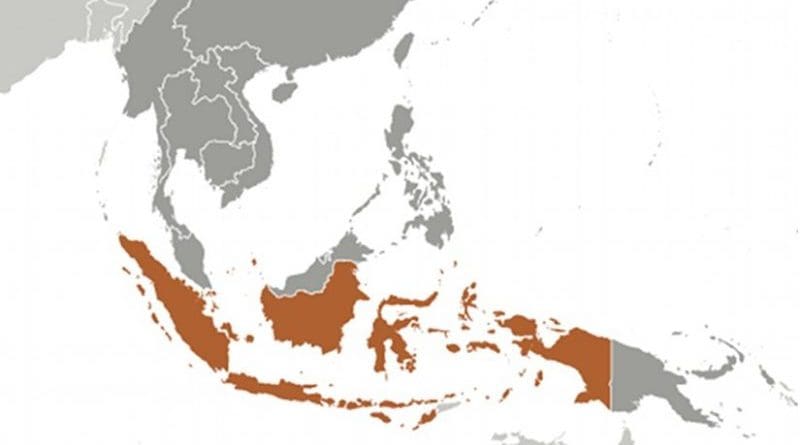AUKUS And Indonesia’s Dilemma – OpEd
On September 15, 2021, the United States, the UK, and Australia agreed to form an alliance called AUKUS (Australia, the United Kingdom, and the United States). The agreement would cover the cooperation of those countries in security, especially assisting Australia in developing nuclear submarines in Adelaide, Australia.
According to British media, The Guardian, which reported, this step is one of the initiations to respond to China’s presence in the South China Sea. The Prime Minister of Australia, Scott Morrison, asserted, “This will include an intense examination of what we need to do to exercise our nuclear stewardship responsibilities here in Australia”.
This attitude certainly became a big spotlight regarding the response to raising power as China was heavily involved in the confrontation. The Chinese government does not recognize that The United Nations Convention on the Law of the Sea (UNCLOS) 1982 that is the main basis but through nine-dash lines. Beijing called the formation of AUKUS an irresponsible act that could threaten regional stability. Beijing’s stance on AUSKUS was conveyed through a spokesman for the Chinese Ministry of Foreign Affairs, Zhao Lijian, “has seriously undermined regional peace and stability, intensified the arms race and undermined international nonproliferation efforts.”
This important agreement certainly highlights in-depth with further implications the relationship between Indonesia and those countries in economy and defense cooperations. According to the Indonesian Foreign Ministry Spokesman, Teuku Faizasyah said that Indonesia has expressed concern over the ongoing ‘arms race’ and ‘power projection’ linked AUKUS.
Dilemma
Before the AUKUS was agreed, the Indonesian Minister of Foreign Affairs, Retno Marsudi, together with the Indonesian Minister of Defense, Prabowo Subianto, met with the Australian Minister of Foreign Affairs, Marise Payne, and the Australian Minister of Defense, Peter Dutton, at the Pancasila Building, Jakarta.
During the meeting, Jakarta and Canberra agreed to raise three memorandums of understanding (MoU) in the defense sector, such as dealing with terrorism, cooperation in strengthening defense, and cyber security. Both countries agreed to increase their leadership commitments regionally such as the Global Counter-Terror Forum (GCTF).
In addition, the two countries also look forward to the publication of the GCTF Gender and Preventing and Countering Violent Extremism (P/CVE) Policy Toolkit developed by the Co-Chairing of the Australian and Indonesian GCTF CVE Working Groups. This policy is also in line with the ASEAN-Australia Declaration on the ASEAN Plan of Action (PoA) to prevent and counter the emergence of radicalism and violent extremism 2018-2025 and the work plan. Preventing and Countering the Rise of Radicalization and Violent Extremism Bali 2019-2025 (PCRVE).
Furthermore, the Indonesian government also proposed the participation of Indonesian National Armed Forces (TNI) personnel to train together in Australia and sending cadet students to study directly at Australian academies such as the Royal Military College Duntroon. Besides, the two countries also agreed to develop educational programs such as Cyber and Emerging Cyber Technology and promised to donate 15 vehicles armored personnel Armored Personnel Carrier (APC) Bushmaster to Indonesia.
In addition, to strengthen defense cooperation, the Indonesian government also has close relations with the United States. For example, the collaboration between Bakamla and the US for a maritime training center in Batam, Riau Islands that spent $3.5 million.
Indonesia also has good economic relations with China. Even in the midst of the COVID-19 pandemic, Chinese investment in Indonesia increased 9% even though previously the trade index had a deficit.
With the UK, Indonesian Trade Minister Muhammad Lutfi and United Kingdom Secretary of State for International Trade Elizabeth Truss virtually signed a Memorandum of Understanding for the Establishment of the Joint Economic and Trade Committee (JETCO). The collaboration is aimed at increasing potential sectors such as education, food and beverage, and agricultural products, technology, medicines and health services, infrastructure and transportation, wood and wood products, renewable energy, financial and professional services, and the creative economy.
Indonesia Must Takes a Steps
The paradox of establishing AUKUS and Indonesia’s cooperation with the countries involved is the reflection of the government being firm. Beijing is indeed a threat to Indonesia in the South China Sea, but Beijing’s contribution is through the Belt and Road Initiative (BRI) can be an alternative in improving the Indonesian economy. The same applies to Indonesia and the US, UK, and Australia, which have very active cooperation in their respective fields.
Therefore, Indonesia needs to take some wise steps. First, Indonesia must be able to create the spirit of the basic concept of Indonesia’s foreign policy, free and active, which can be carried out properly without taking sides with anyone. In other words, in a situation like this, Indonesia’s concept-based policies need to be tested.
Second, Indonesia must have an integrated national policy towards the North Natuna Sea and increase coordinated patrols in the area. It also needs to affirm Indonesia’s position firmly in international politics.
* M Habib Pashya, a research assistant at Universitas Islam Indonesia and Silvanah, a student at Universitas Islam Indonesia. Silvanah, a student of international relations, Universitas Islam Indonesia also contributed to this article.

